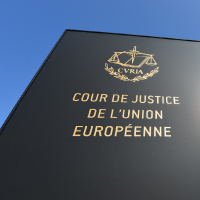
Recommended contact person
Introduction
In the evolving world of global energy dynamics, Cyprus stands as an essential player with a unique set of challenges and opportunities. Energy law, governing the production, distribution, and consumption of energy, is crucial for moving the island towards sustainability and energy independence. Within this legal framework, significant developments, such as the revamped solar panel scheme, “Solar for All” program, highlight Cyprus’ proactive approach to embracing renewable energy. This scheme aims to bolster the adoption of solar energy across the island, marking a significant step forward in Cyprus’ green energy ambitions.
This article examines the intricacies of energy law in Cyprus, exploring its alignment with European Union directives, the diverse sectors of energy, and the procedural pathways for energy project licensing.
Laws and Regulations
Cyprus’ energy sector is governed by a specific framework designed to promote efficiency, sustainability, and compliance with EU standards. Central to this framework are the Electricity Market Regulations and the Renewable Energy Sources (RES) laws, which aim to liberalize the energy market and boost the adoption of renewable energy sources. The recent revisions in these laws, in line with the Clean Energy for All Europeans package, underscore Cyprus’s commitment to a greener future.
In Cyprus, key legal frameworks for the energy sector include the Regulation of the Electricity Market Law of 2003 which governs the operation and regulation of the electricity market, and the Promotion of Use of Energy from Renewable Sources Law of 2022, aligning with EU renewable energy directives. At the EU level, the “Clean Energy for All Europeans” package comprises several key directives and regulations, such as the Renewable Energy Directive (EU) 2018/2001, the Energy Efficiency Directive (EU) 2018/2002, and the Governance Regulation (EU) 2018/1999, setting targets for energy efficiency and renewable energy for 2030.
Authorities Related to Energy Law in Cyprus
In Cyprus, the energy sector’s legal and regulatory framework is overseen by key governmental authorities that ensure compliance with national and European Union energy directives. These bodies play critical roles in policy formulation, regulatory oversight, licensing, and the promotion of sustainable energy practices.
- Cyprus Energy Regulatory Authority (CERA) – CERA acts as the independent regulatory authority responsible for overseeing the electricity and gas markets in Cyprus. Its duties include ensuring the proper functioning of the energy market, setting tariffs, granting licenses, and ensuring compliance with regulations to promote competition and protect consumer rights.
- Ministry of Energy, Commerce, and Industry – This Ministry is important in developing and implementing energy policies in Cyprus. It focuses on enhancing the country’s energy security, promoting renewable energy sources, and improving energy efficiency. The Ministry also plays a significant role in aligning Cyprus’ energy policies with EU directives, aiming for sustainability and environmental protection.
- Department of Environment – While not exclusively focused on energy, the Department of Environment plays a crucial role in assessing the environmental impact of energy projects. It ensures that energy developments comply with environmental standards and contribute to Cyprus’ commitments under international and EU environmental agreements.
These authorities work collaboratively with European institutions, local businesses, and the public. Their efforts are directed towards creating a balanced, sustainable, and competitive energy sector that aligns with both national interests and EU directives.
The Different Sectors of Energy in Cyprus
- Photovoltaics (PV) – The PV sector in Cyprus is a growing sector, driven by the island’s favorable climate and supported by national and EU regulatory frameworks. The sector is regulated under the “Promotion of Use of Energy from Renewable Sources Law” which aligns with the EU’s Renewable Energy Directive. This framework encourages both residential and commercial investment in PV systems, offering incentives such as feed-in tariffs and grants. Entities and individuals wishing to install PV systems must apply through the Cyprus Energy Regulatory Authority (CERA), which oversees licensing. The business model for PV in Cyprus typically involves selling surplus energy back to the grid, making PV investments increasingly attractive due to declining installation costs and supportive policies.
- Wind Energy – Wind energy in Cyprus, though less developed than photovoltaics, is gaining momentum due to its potential for contributing to the island’ renewable energy targets. The sector is guided by the Promotion of Use of Energy from Renewable Sources Law, aligning with EU directives to increase the use of renewable energy. Licensing for wind farms is managed by CERA, requiring detailed environmental impact assessments and compliance with local and EU regulations. The wind energy business model involves both small-scale installations and larger wind farms, with incentives similar to those for photovoltaics, aimed at encouraging investment and development in this sector.
- Solar Energy – Solar energy in Cyprus encompasses both photovoltaic and solar thermal technologies. While PV focuses on generating electricity, solar thermal is used for heating water, a common application in Cypriot homes and businesses. The sector is supported by the Promotion of Use of Energy from Renewable Sources Law, incentivizing solar investments through subsidies and feed-in tariffs. Licensing and regulation are overseen by CERA, ensuring compliance with both national and EU standards. The solar energy business model is attractive due to Cyprus’ generous sunlight, offering significant savings on electricity bills and contributing to the island’s renewable energy goals.
- Waste to Energy – Waste to Energy (WtE) sector in Cyprus is emerging, focusing on converting waste into electrical energy or heat, aligning with EU waste management and renewable energy directives. This sector is regulated under environmental and energy laws to ensure sustainability and efficiency. Facilities must obtain licenses from CERA and meet strict environmental standards. The WtE business model supports Cyprus’ waste reduction goals and provides an alternative energy source, contributing to the island’s energy diversification and sustainability objectives.
- Other Emerging Energy Sectors of Cyprus – Cyprus is exploring geothermal energy for heating and cooling, leveraging the earth’s stable temperatures. Bioenergy is another focus, converting organic materials into energy, supporting waste reduction and sustainable energy production. The potential of wave and tidal energy, given Cyprus’ maritime location, is under examination for its feasibility in contributing to the energy mix. These sectors, at different development stages, highlight Cyprus’ efforts to diversify energy sources and enhance sustainability, aligning with global and EU environmental goals.
Procedures for Licensing
The licensing process for energy projects in Cyprus involves a structured approach to ensure compliance with national and EU regulations. Applicants must first submit a comprehensive proposal detailing the project scope, environmental impact assessments, and technical specifications. Following this, CERA and other relevant authorities conduct a review, focusing on environmental, safety, and technical compliance. Successful applications are granted licenses, subject to ongoing monitoring and regulation to ensure adherence to standards. This process is designed to streamline the development of energy projects while safeguarding environmental and public interests.
The approval time for energy project licenses in Cyprus can vary significantly depending on the project’s scale, type, and environmental impact. Generally, the process can take several months to over a year.
With respect to the ‘comprehensive’ proposal, this should include detailed project descriptions, technical specifications, environmental impact assessments, feasibility studies (if needed), and compliance plans with local and EU regulations.
Questions & Answers
- What is the main regulatory body for energy projects in Cyprus? CERA is the main body regulating energy projects in Cyprus.
- Can individuals install solar panels without a license in Cyprus? Small-scale solar house installations may not require a license.
- Are there incentives for using renewable energy sources in Cyprus? Yes, Cyprus offers various incentives for renewable energy, including grants, and other benefits.
- What renewable energy sources are utilized in Cyprus? Cyprus focuses on solar, wind, bioenergy, and is exploring geothermal and marine energy potentials.
- What is required in the environmental impact assessment for energy projects? Assessments must detail the project’s potential impact on local ecosystems, wildlife, and community health, proposing mitigation strategies.
- How long does it take to obtain an energy project license in Cyprus? The duration varies, typically ranging from several months to over a year, depending on the project’s complexity.
- Can foreign investors participate in Cyprus’ energy sector? Yes, foreign investors can engage in Cyprus’ energy sector, subject to compliance with national regulations.
- What are the key challenges for renewable energy development in Cyprus? Challenges include limited land space, initial high investment costs, and the need for storage solutions due to intermittent energy supply.
- Is there a specific procedure for licensing waste-to-energy projects? Waste-to-energy projects follow the general licensing procedure but require additional environmental clearances and compliance with waste management laws.
Conclusion
Cyprus is at a key moment in its energy transition, aligning with EU directives on renewable sources and sustainability. Despite challenges, the potential in sectors like photovoltaics, wind, and emerging technologies is significant. As Cyprus continues to harness its renewable resources, it sets a precedent for sustainable development, aiming for energy independence and environmental stability.
For those seeking expert guidance through Cyprus’ energy sector’s legal requirements, our firm offers comprehensive services. We assist with licensing applications, environmental impact assessments, and investment strategies. Our team is dedicated to facilitating our clients’ projects’ success, ensuring compliance and legal security.
For all enquiries please contact our team of experts at agp@agplaw.com
The information provided by AGPLAW | A.G. Paphitis & Co. LLC is for general informational purposes only and should not be construed as professional or formal legal advice. You should not act or refrain from acting based on any information provided above without obtaining legal or other professional advice.















